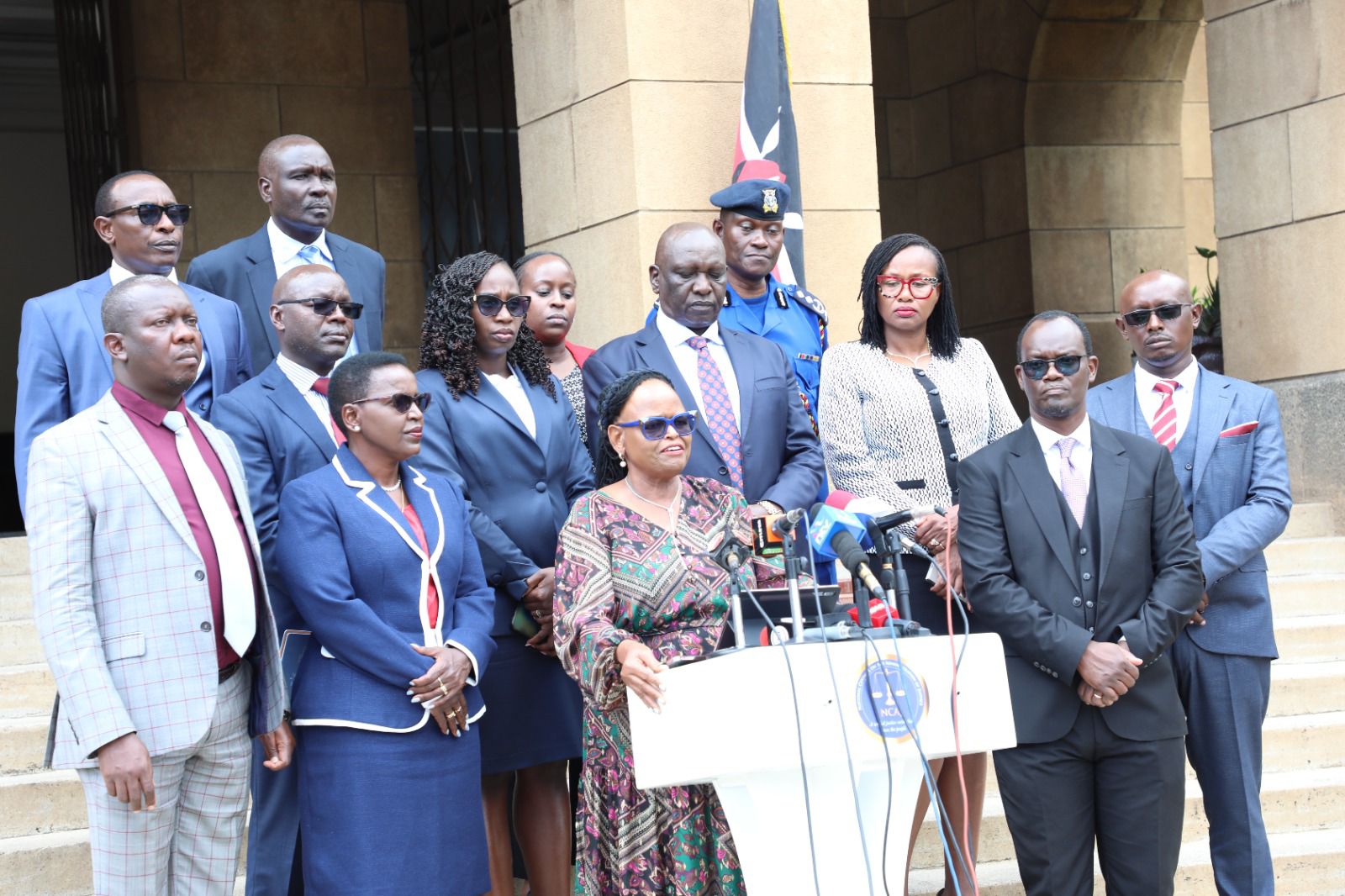National Treasury faces scrutiny over Sh161 billion debt repayment anomalies

Gathungu pointed out that her office was unable to obtain all the necessary documents to link the borrowed funds to specific projects.
Auditor General Nancy Gathungu has put the National Treasury under scrutiny over discrepancies in the repayment of external debt, which amounted to Sh161 billion, over the past three financial years.
In a special audit report presented to the National Assembly’s Public Debt and Privatisation Committee, Gathungu raised concerns over unclear expenditure related to debt servicing, specifically highlighting significant variances between budgeted, approved, and actual debt repayments for the financial years 2020-2021, 2021-2022, and 2022-2023.
More To Read
- Only two of 63 performance audits discussed by MPs since 2012 - Auditor General
- Counties exposed as Auditor General flags major in emergency preparedness
- State agencies, counties owe Kenya Power Sh4.67 billion in unpaid bills - Auditor General
- Top schools flagged for illegal fees and uniform procurement in Auditor General’s report
- Treasury under fire for using Sh2.67 trillion in domestic loans on recurrent spending
- Auditor General calls for penalties on officers who ignore audit recommendations
Gathungu revealed that the actual repayments in the financial years 2020-2021 and 2021-2022 fell short of the amounts approved by the Controller of Budget by Sh1.4 billion and Sh83.3 billion, respectively.
These underpayments exceeded the legal variance limit of five per cent, reaching as high as 10 per cent in some instances.
However, in the following financial year, the Treasury surpassed the approved amount by a substantial Sh77 billion.
Baringo North MP Joseph Makilap raised concerns over potential corruption.
"This could be an issue for corruption… The PFM Act says you don’t procure services and goods beyond your budget. If you do it, it is an offence," he said.
Director of Public Audit at the Office of the Auditor General Gideon Mokaya emphasised the need for accuracy in the budgeting process.
Variances high
“Our position is that these variances are high, and if they are doing the budgeting process, they are captured accurately so that the variances are not as big as we see here,” Mokaya said.
In response, the Treasury attributed the fluctuations to the changing exchange rates of the Kenyan shilling against other currencies.
Despite this, Gathungu pointed out that her office was unable to obtain all the necessary documents to link the borrowed funds to specific projects.
The audit also revealed concerns regarding project loan management. Out of 32 sampled loans, only 18 projects had undergone feasibility studies to determine their necessity.
Further, 22 of the 32 projects lacked documentation to show public participation, leaving the projects without input from the public.
The audit also found that many project loans were not properly approved, exposing them to risks such as double-financing and costs exceeding budgeted amounts.
Only five of the 32 project loans had received legal opinions from the Attorney General.
Top Stories Today













































